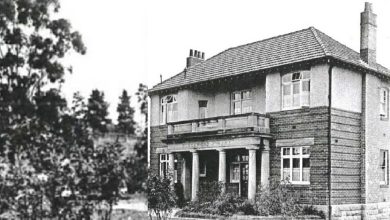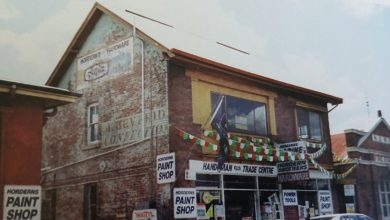IT’S JUST COMMON SENSE BUT I AM IN A PICKLE!!!
Yes I am in a pickle, or is it a jam. You see I was at a bit of a loss to think of something to write about for this issue. However my wife said what about “Common Sense” and she produced for me a couple of old books from the 1940s and 1960s.
Whilst cleaning out an in-tray in my office I also came across a letter from Glenda Lloyd of Castle Hill which also related to the subject at hand. That subject is what we call Common Sense. The books that my wife produced f or me are two copies of “The Commonsense (sic) Cookery Book”. The copies that we hold were published about 20 years apart and were published by The Public School Cookery Teachers’ Association of New South Wales. One would think that teachers should know that it is only common sense that “Common Sense” is two words unlike the title of their cookery book that spelt it as only one word.
Anyway, back to Glenda’s letter which she actually refers to as the Common Sense Laundry Book. Glenda quotes the following extract from a copy, which cost 9d, and which she believes was published around the time of World War 2.
Now we are in the 21st Century, Glenda’s problem is this – “is any part of it being common sense”.
Now, whilst the “Commonsense Cookery Book” contains many recipes and hints for around the home, I discovered that it also brought back memories of long gone products and companies amongst the many advertisements in the books which, I assume, helped pay for the publications. I will reproduce some of these advertisements in the “As We Were” section of this magazine over time.
The books also contained information such as a time table for cooking meats, a list of kitchen requisites, a table of measures, a list of joints and their accompaniments, garnishes and also a dictionary of terms used in cookery.
I wonder is the book still in publication? Is it still used in cookery classes at school?
“Cleaning of Laundry (After Use)
Leave the laundry clean and tidy after use.
Thoroughly clean all equipment,
being careful to dry zinc and galvanised iron ware.
Dust and tidy shelves and cupboards,
re-label jars if necessary, and
put everything back in its proper place.
Make list of materials needed for next washing day.
Scrub all white wood.
Loosen screws on wringer and mangle,
and place covers over, to protect from dust.
Turn buckets and loose tubs upside down.
Cover copper and fixed tubs.
Polish brasswork, clean brickwork.
Sweep floor and mop or scrub it.
Allow room to dry,
and air thoroughly before closing up.”










